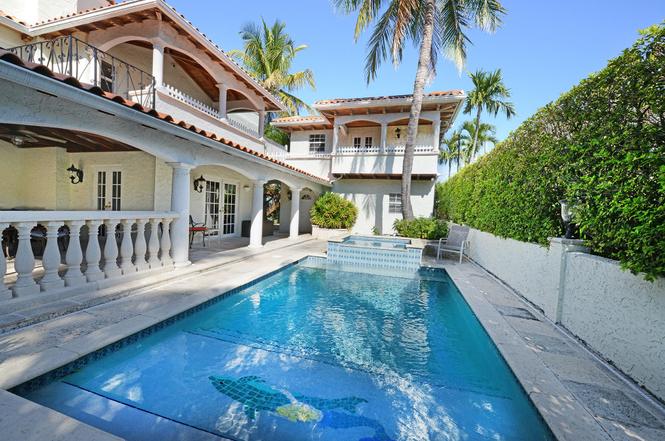Frustrated property investment professionals have warned the government amid tax data showing the nation’s biggest landlord hub is in Melbourne’s western suburbs.
Victorian tenants are being evicted from their homes as banks repossess properties from investor owners amid a surge in the share of the state’s landlords losing money.
Latest tax figures have revealed upwards of 324,000 (55 per cent) of the state’s more than 580,000 property investors are propping their portfolios up with negative gearing — a figure almost unparalleled around the nation.
Data from just two years prior shows less than half Victoria’s individual income tax returns that disclosed rental income were reporting a loss, with the total a whopping $3.2bn, prompting concerns from property experts that more recent tax hikes are risking renters’ homes.
RELATED: 2021: Where Victorian landlords own property
Revealed: The regional towns where house prices are surging
Shock inflation spike dashes hopes for rate cuts
And a leading tenant advocacy group has warned evictions as a result mortgagee sales are on the rise.
The state has become the epicentre of a battle between investor ownership rights and renters’ rights to a roof over their head, with Australia’s highest protections for tenants and the biggest tax burden for landlords.
Latest tax data, for the 2023 financial year which was released in June, shows Victoria is also now the nation’s second most negatively geared state or territory by both the number of investors losing money, behind NSW, and the share who are taking a financial hit to own an investment, behind the ACT.
29 The Avenue, Caroline Springs, sold for $680,000 in November, 2022, and was leased out for $400 a week at the time. Many landlords living in the suburb own investments there too.
Australia’s most populous landlord postcode is 3030, which covers Werribee and Point Cook where more than 12,500 property investors live, according to individual tax return data. Almost 9000 (71 per cent) reported a net rent loss in the 12 month period. It’s up from 66 per cent in 2021.
Melbourne’s next entry on the list was also the nation’s third most populous postcode for landlords, with 3029, the Hoppers Crossing area, hosting 11,072 individuals who included rental income in their tax return — more than 8000 of them taking a loss.
Property Investment Professionals of Australia chair Lachlan Vidler said the “surprising” data showed a different view of who investors were compared to government claims they were wealthy.
“It’s not your white collar high income professionals, it’s very much that mum and dad belt,” Mr Vidler said.
Where The Landlords Live
Point Cook, Werribee (3030) — 12,572
Hoppers Crossing, Tarneit (3029) — 11,072
Glen Waverley, Wheelers Hill (3150) — 10,851
Cranbourne (3977) — 7,961
Craigieburn, Donnybrook (3064) — 7,571
5 Parkhaven St, Craigieburn, sold in July 2022 for $584,000 — at the time it was leased on a month-to-month basis.
Burnside, Caroline Springs (3023) — 5,786
Berwick, Harkaway (3806) — 5,776
Mt Waverley, Syndal (3149) — 5,688
Ballarat (3350) — 5,105
Wantirna, Wantirna South (3152) — 4,831
Postcodes with highest number of individual tax returns declaring net rent income.
Source: Taxation Statistics 2022-2023, ATO
He said with rents having risen substantially across most of the rest of the nation since the 2023 tax year, governments at all levels needed to rethink their approach to rental homes and investors.
“They (the government) do have a huge obligation as they can physically provide some of that accommodation, but they can also create policies that make things better, or worse,” he said.
“But when the government sentiment always seems to be to attack investors, or there’s a fear that the laws will be changed or altered every few years, it doesn’t set up a situation where the government is seen to be valuing the contributions of the private investors.”
1 Sunnyside Drive, Berwick, sold for $673,500 in May, 2023. At the time it was leased for $410 a week.
Tenants Victoria chief executive Jennifer Beveridge said that in more recent times they had noted an increase in renters being evicted after the bank repossessed their home from a landlord.
“It’s a terrible experience, because too often they haven’t been kept informed,” Ms Beveridge said.
“We have heard examples from renters who have had the sheriff turn up to their home without any prior warning, and renters who were made to move out at very short notice.”
The tenants’ advocate said high levels of investors relying on negative gearing in an area could be concerning, where they did not understand costs beyond paying the mortgage and that renters have a right to a home that’s in good repair and meeting minimum standards.
Tenants Victoria chief executive Jennifer Beveridge says they are seeing rising numbers of evictions as landlords have homes seized by their bank.
Real Estate Institute of Australia president Leanne Pilkington said the high levels of negative gearing among Victorian landlords was also a sign that the mum and dad investors who had been relied on for decades might not have the capacity to provide more rental homes amid rising population.
With the corporate landlords behind build-to-rent not yet able to cover a significant portion of the market, Ms Pilkington said the government might have to fill the void.
“There’s not really other options than for the government to build more social and affordable housing,” Ms Pilkington said.
Sign up to the Herald Sun Weekly Real Estate Update. Click here to get the latest Victorian property market news delivered direct to your inbox.
MORE: Racing mogul Lloyd Williams sells Melb penthouse for $17.7m
Riddells Creek to almost double population with new housing precinct
Nightclubs, hyperbaric chambers: What Melbourne’s young and rich want in their home



















 English (US) ·
English (US) ·